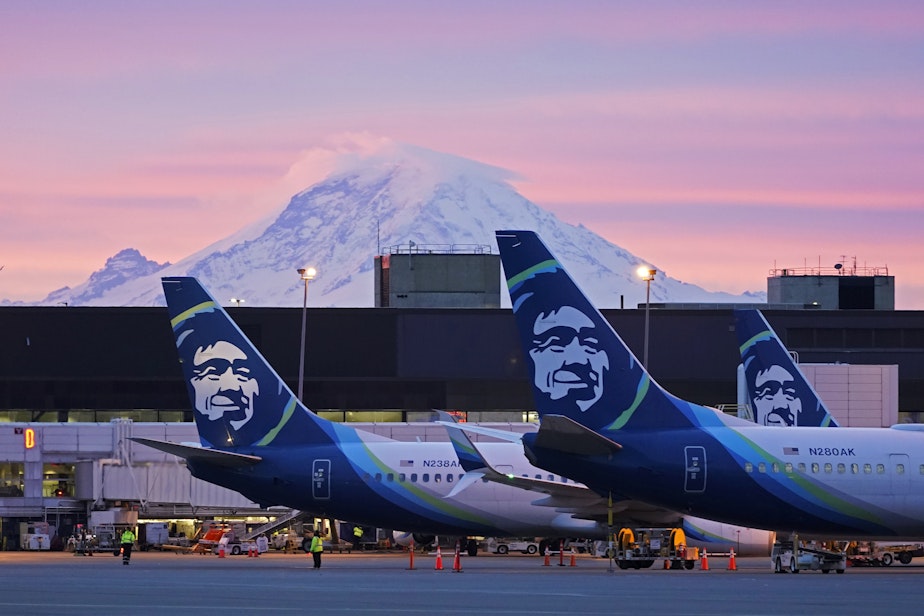Will regulators stop the Alaska Hawaiian merger?

Seattle-based Alaska Airlines announced over the weekend it plans to buy Hawaiian Airlines. The $1.9 billion deal would solidify Alaska's position as the nation's fifth largest carrier.
But this is far from a done deal, and the Biden administration has closely scrutinized other large airline mergers recently.
Alaska is commonly referred to as a hybrid airline — it isn't a giant legacy carrier like Delta or United, but it also isn't a budget airline like Spirit or Frontier.
The deal would give Alaska access to Hawaiian's international routes.
"This gives Alaska some ways to compete with that by offering more international service and more destinations," said Lori Aratani, a transportation reporter for The Washington Post.
The merger also gives Hawaiian more routes in the continental U.S., so it can compete with Southwest, which also has a presence in Hawaii.
Sponsored
The Biden administration has been aggressively enforcing antitrust law in the airline industry. A JetBlue and Spirit merger is in the midst of an antitrust court case.
"Some analysts aren't sure that JetBlue and Spirit will win this case. We'll see," Aratani said. "They think it's harder to make the case against an Alaska Hawaiian merger. But that's not to say that DOJ won't."
Listen to Soundside’s full conversation with Lori Aratani by clicking the play icon at the top of this story.





